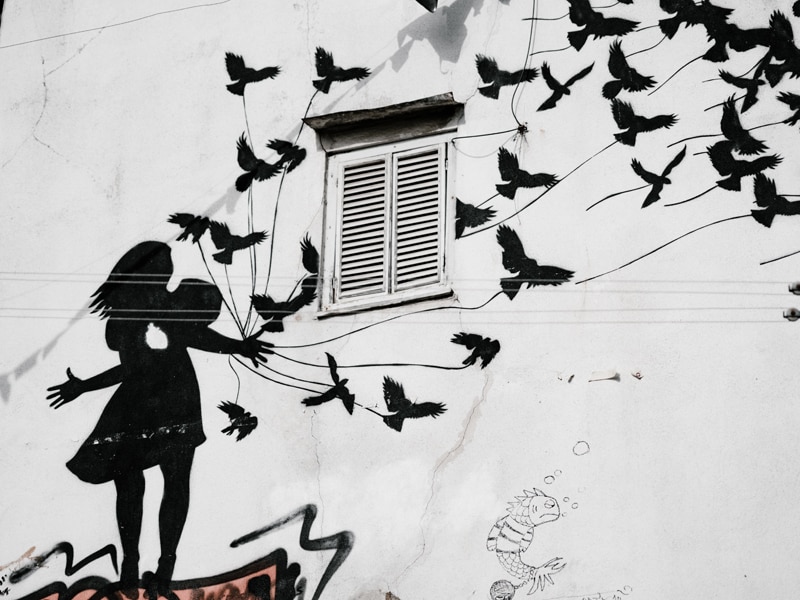It can be very confronting to learn that your teen is self harming – that is, they are deliberately hurting themselves. The term ‘self harm’ is now generally referred to as “non-suicidal self-injury” or NSSI. It’s a really important distinction, because it reminds us that a teen who is self harming is most likely not suicidal or really want to injure themselves.
Trigger WARNING: Detailed referencing of Self-Injury (Self-Harm) or Non-Suicidal Self-Injury (NSSI) practices.
These are excellent resources to help learn more about what NSSI is and what you can do to support your child:
Lifeline
Kids’ Helpline
Beyond Blue
If you discover your teen is self harming, either accidentally or because they have confided in you, it’s important not to panic. From the Lifeline website:
Self-harm is usually not the same as a suicide attempt. However, self-harm may sometimes lead to a serious medical emergency. Also, people who self-harm are more likely to have had suicidal thoughts or to have previously attempted suicide, and over time may be at increased risk for of dying by suicide. If life is in danger get help. Call 000 or Lifeline on 13 11 14.
Why teens self harm
Your child may be able to articulate their reasons why they self harm, or they may not know. Lifeline outlines that your teen may be using self harm as a way to:
• Deal with or stop negative emotions or pain, such as feeling sad, angry, upset, guilty or scared.
• Release tension or a build-up of big emotions.
• Relieve feelings of loneliness or isolation.
• Punish themselves for something they’ve done, or something perceived as their fault
• Feel “alive” or “real” or combat feelings of numbness
• Feel more in control of their life
• Communicate to people that they need some support when they can’t express it in words.
How do teens self harm
Kids’ Helpline lists different ways that kids self harm as follows:
• Cutting or scratching
• Burning or picking the skin
• Banging or punching objects or self
• Pulling out hair
• Intentional overdose on drugs or medications; self-poisoning
• Deliberate risk taking with the intention of injury
Your child might be doing one or more of these self harm actions, or they may be doing something unique to them. The ways are as varied as the reasons, so it’s difficult to say exactly what self harm will look like.
One mum’s story: My daughter is self harming and I feel so guilty
How to help
There is a first-person story from a mother who discovered that her daughter was self-harming here. The guilt this mum expresses is very tough to read. It’s important to realise that it is not your fault if your teen is self harming.
Beyond Blue acknowledges that supporting someone who self harms can be really hard. It is especially tough for a parent when they discover their teen is self harming. You can support your teen as follows:
• Try to be calm, open and honest, not judgmental or shocked. Try not to take their behaviour personally, rather listen and try to understand. Don’t ignore their behaviour and hope it will “go away”, instead seek professional help (see below).
• Be clear that you love and support your child and will simply listen when they want to talk. Don’t threaten your child or punish them for self harming. This is not something they have control over and they will most likely need professional help to stop.
• Help the your teen make a plan about what they can do if they feel like self harming. A safety plan might prompt them to answer questions like:
What warning signs can you spot that you may not be in control of your feelings?
What other ways of coping have you used in the past that could help you now? These might include things like delaying self harm; being with other people; distracting yourself with a favourite activity; practising mindfulness or meditation; pampering yourself; getting some exercise; minimise self harm damage (eg, use a red pen rather than cutting).
What would you say to a friend who was feeling this way?
What could others do to help?
Who can you call on to support you right now – friend, relative, health professional, teacher, etc
• Make sure first aid supplies are easily accessible and that they know how to use them.
• Encourage your teen to get support from health professionals like their GP or psychologist. Offer to be with them during their appointments if they need you there.
They may not want to go, but don’t give up: keep mentioning it. “I care about you and want to support you, so I’m asking you again if you would like me to make an appointment with Dr X…”
• If your child isn’t ready to see a health professional, encourage them to get in contact with a service like Kids Helpline (phone 1800 55 1800 | email counsellor@kidshelpline.com.au | online chat) or Lifeline (phone 13 11 14 | text 0477 13 11 14) for support over the phone or via text or email.
Take care of you
Remember to look after yourself. Like most of the challenges we face as parents, looking after our child during this time can be very draining. Seek out your support network, look after your health and try to remain calm and positive.
If you, or someone you know, are in crisis and urgently need help, contact Lifeline on 13 11 14 or Kids Helpline on 1800 55 1800. If you are in immediate danger, call 000 right now.
Helpful resources for teens
Please click here for a list of organisations to contact for help in any situation.
Please always just ask for help – people are there for you!
Feature image by Annie Spratt ; hug by Anastasia Vityukova


